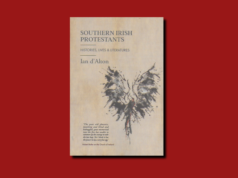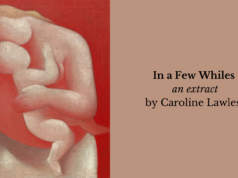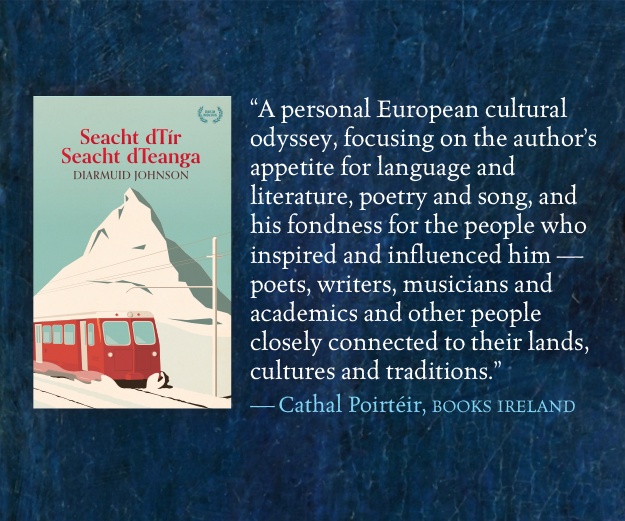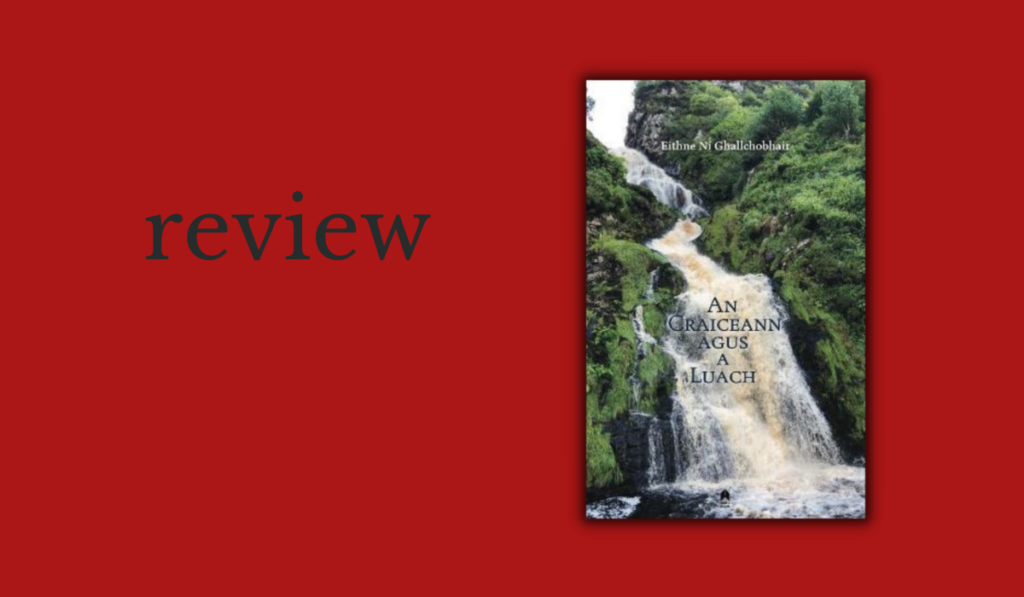
An Craiceann agus a Luach|Eithne Ní Ghallchobhair|Arlen House|ISBN 978-1-815132-257-2
Cathal Póirtéir on a retelling of an old tale—with a revealing eye: An Craiceann agus a Luach by Eithne Ní Ghallchobhair (Arlen House).
by Cathal Póirtéir
One of the traditional storytellers whose live performances have captivated me in recent years is Eithne Ní Ghallchobhair from the Ard an Rátha area of south-west Donegal.
Listening to her bring stories of ancient heroes like Fionn Mac Cumhail and the Fianna so vividly to life for a twenty first century audience is a wonderful experience. Her own enthusiastic engagement with the adventures she relates adds much to the listeners’ appreciation and enjoyment of her retelling of traditional stories from the oral tradition.
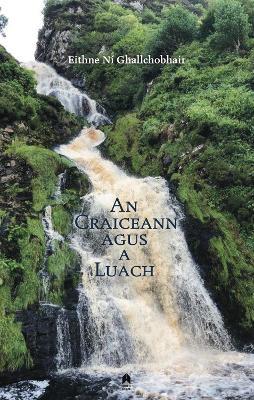
A retelling in verse
Eithne Ní Ghallchobhair won an Oireachtas literary award for her collection of short stories, Súil (2018) which turned a revealing eye to the animal kingdom and nature among other themes.
Her Múscail, a Ghiorria (2020) was rightly shortlisted for an Irish language Book of the Year award.
In her latest book she combines her knowledge and love of traditional stories with her narrative and literary abilities to give us An Craiceann agus a Luach, a retelling in verse of the widely known legend of the mermaid who marries a mortal man after he has secretly stolen and hidden the magic cloak she needs to return to her underwater world.
When she eventually discovers her magical cloak was all the time hidden nearby she immediately returns to her own people and their underwater kingdom forsaking the possessive man and her child.
An old story re-imagined
Eithne Ní Ghallchobhair takes the bones of that well-known and well-loved story and turns her talents to some aspects of it to investigate the mind of the captive mermaid, confined to an existence on dry land against her will. The writer uses the tale to examine what the loss of personal freedom means, the injustice of subjugation and the need for unrestricted self-fulfilment. While that may sound a bit heavy, it is all handled with a light touch.

Many versions of the folktale
There are many versions of this story in the National Folklore Archive that were noted down from Irish oral tradition. In the Anglophone world there are versions that have been made popular by various writers and film-makers. Matthew Arnold‘s poem The Forsaken Merman (1849) was commonly encountered in my schooldays and may still be the best known literary treatment of this traditional tale for many readers, while more recent film versions of the story include the American fantasy romantic comedy Splash (1984) with Tom Hanks and Daryl Hannah and Niall Jordan’s Ondine (2009), staring Colin Farrell and Alicja Bachleda.
Mermaid tales go back as far as 1000 BC in ancient Syria and the first published literary version of a mermaid tale in European tradition is Hans Christian Anderson’s The Little Mermaid in 1837, which tells a somewhat different story but nevertheless centres on the fate of an unfortunate mermaid.
Irish oral tradition
Eithne Ní Ghallchobhair‘s version remains firmly within the Irish oral tradition while probing it for metaphors and deeper meaning below the surface of the well-known plot. In her hands it is a really enjoyable read and offers itself for an exceptional live performance in the hands of a skilled storyteller. I saw her read an extended passage from it at an event in Donegal recently and it was a real treat.
The rich language and rhythmic variations of this verse version make it something of a tour de force.
Long narrative poems are unusual in modern Irish language poetry and this 120 page version is exceptional both in length and in quality. At times it is playful, angry or thoughtful and at all times a most enjoyable reading experience.
Read it aloud to yourself or to a younger audience and you’ll get a real sense of the richness of language the writer has at her command and the enjoyment she can express through a traditional tale reimagined.

Cathal Póirtéir has specialised in researching, presenting and commissioning Irish interest material in various radio formats and in books, including history, literature and folklore in Irish and English, as well as current affairs and drama.








